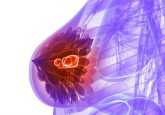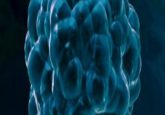Fighting back against cancer cell defences
One reason why cancer cells are so destructive is that sometimes they demonstrate the ability to fight back against treatments. The ideal scenario would be removal of cancer cell’s defences completely.
Research by scientists from the University of Ottawa (Canada) may have moved one step closer to solving this precise problem. Their new findings could mean the development of new therapeutics that treat not only cancer but a number of other diseases also.
The lab examines stress granules (aggregates of proteins and mRNA within the cytoplasm) produced by the body as a protection against environmental stressors. These environmental stressors include limitations in nutrient availability or a certain toxicity. Stress granules also contribute to chemotherapeutic resistances during cancer treatment as they aid cancer cells in defending themselves against such treatment.
Investigator Kristin Baetz (University of Ottawa) stated: “The first step in figuring out how to prevent this from happening is to understand how stress granules are formed and disassembled.” She went on to say “… we now have key information”.
Yeast cells mimic human cell biology and so they are a very useful and important source of information about human cells. Using yeast cells from Saccharomyces cerevisiae, the researchers discovered a specific class of enzymes that have a key role in the regulation of stress granule formation. When these enzymes are deactivated scientists found a ‘direct correlation’ to reducing levels of stress granules.
About the significance of the findings Baetz explains, “On the surface we may be very different, but at the cellular level humans and yeast are very much the same. Given that similarity, our research is of direct relevance to human cancer biology, and metabolic and neurodegenerative diseases.”
In a summary of their paper, authors explain that there are “a growing number of drugs that target this class of enzyme,” meaning “there is the possibility that these drugs may reduce stress granule formation.” Indeed, when the yeast cells were treated with these drugs, a lowering of stress granule levels was observed.
The team at the University of Ottawa collaborated with mammalian cell biologists and cancer specialists to further test their findings. The yeast cells were added to a breast cancer cell line, and when treated with the drugs – the stress granule level was once more reduced.
The research, published in PLoS Genetics could open up many more investigations into disabling cancer cell defences. Baetz concludes, “We’ve discovered one way to decrease stress granule formation, plus we have therapeutics – so we’re well positioned to explore how this strategy might work on diseases.”
Sources: Rollins M, Huard S, Morettin A et al. Lysine acetyltransferase NuA4 and acetyl-CoA regulate glucose-deprived stress granule formation in Saccharomyces cerevisiae. PLoS Genet. Doi: 10.1371/journal.pgen.1006626 (2017); University of Ottawa press release



